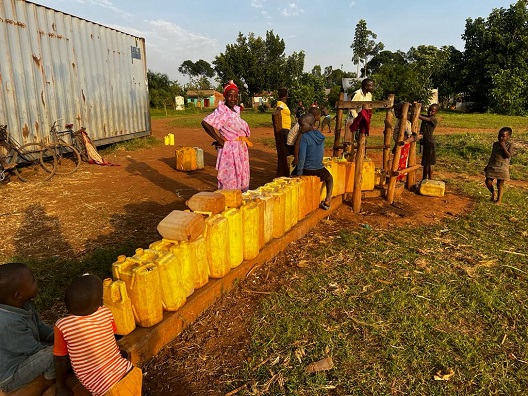Malnutrition
Often lost in discussions around the subject of hunger, especially in the context of the discourse to "end world hunger," or to "feed the world."
Read MoreSustainably produced coffee is grown in a way that conserves nature and provides a good livelihood for the people who grow and process it. Unsustainable coffee production contributes to deforestation, water contamination and the exploitation of workers. In order to maximize profits, effective this year and in the future, Coffee farmers need to work in a way that is. Environmentally Sustainable, Economically Sustainable and Socially sustainable.
By doing this, and working in a sustainable way, farmers can continue to generate good yields of high-quality coffee that fetch a good price for many generations to come.
We find an opportunity to teach the farmers to utilize farm organic wastes and residues commonly found within the farm
Engaging the farmers in a sustainable coffee production
Visiting some of our farmers to know some of their challenges
The project will focus work with members having small scale farms within the areas of kayunga, primarily in the villages that make up kangulumira.
Through an established farming system of mixed crop species. -Prevent soil erosion, as well as the deterioration of soil through mechanical control for example use of terraces, erosion barriers and biological control like maintaining vegetative cover all year round through intercropping with nitrogen binding legumes or through Mulching.
Planting varieties of shade trees like Grevillea ssp, Ficus spp, and Cordia spp in coffee gardens to provide coffee with shade but also to prevent the pests such as the black twig borers.
Support farmers to collect run-off water in trenches for soil moisture and retention. Reduce the volume of water used in the wet processing of coffee via the application of efficient technologies and recycling of water. Take active steps not to pollute local water sources - they belong to everyone.
It's important to separate organic and inorganic waste- Organic waste can be used to make compost and improve the health of the farmer's soil.
Climate change is the change of the Earth's ecosystems due to an increase in the global temperature. The effects of climate change include prolonged droughts, hailstorms, landslides, floods, thunderstorms and unreliable rainfall which can disrupt agriculture productivity. Good Agricultural Practices will be adopted. These include planting shade trees- (1000 trees already planted), mulching, irrigation, use of manure and soil erosion control and use of cover crops.
Coffee should be harvested well, Processed well and well stored to avoid contamination from the bare grounds or other foreign materials that compromise the quality coffee.
With a good relationship with the farmer's cooperatives/associations, farmers can link to support services that help farmers bargain collectively to achieve a good price.
Where possible farmers will engage in multiple income-generating activities on or off-farm under this project. when farmers have different income sources it helps them to build resilience and they are more likely not to be forced to sell their coffee at the farm gate at harvest time for immediate cash. They will wait and sell their coffee in bulk at a higher price. More farmers will join NAFAU (Noah's Ark Farmers Association Uganda to save money and take out loans at favorable at fair terms.
Farm workers should be treated equally and fairly with no discrimination against gender or disability. All workers are important for the farm to grow and should be treated with respect. Reasonable working conditions such s clean drinking water, toilets and protective equipment shall be our focus in improving their condition through research and advocacy. The project will strongly reject all forms of child labor.
Both staff and farmers will be trained in sustainable production practices and good agricultural practices.

Often lost in discussions around the subject of hunger, especially in the context of the discourse to "end world hunger," or to "feed the world."
Read More
Education is a purposeful activity directed at achieving certain aims, such as transmitting knowledge or fostering skills and character traits.
Read More
Access to clean water, basic toilets, and good hygiene practices not only keeps people thriving, but also gives them a healthier start in life.
Read More